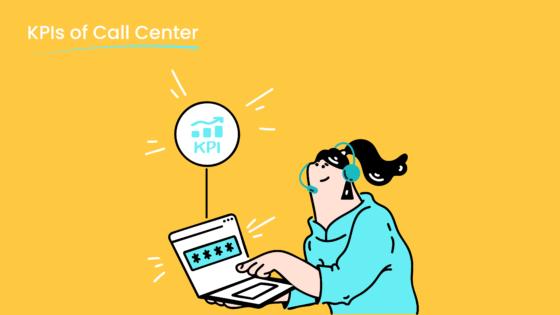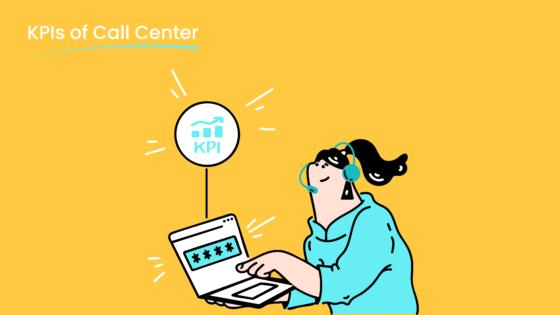Customer Support Job Description or Customer Service Role Guide

You may wonder why knowing the difference between a customer support job description and a customer service representative role matters. Choosing the right path helps you plan your career and set clear goals. Sobot AI and Sobot call center tools have changed the way companies help customers. Sobot gives you a chance to see how these roles work in real businesses.
Customer Support vs Customer Service

Job Descriptions Overview
You may notice that customer support and customer service roles often sound similar, but they have unique responsibilities. Let’s look at how industry experts define these jobs:
| Role | Description |
|---|---|
| Customer Service Representative | Interacts with customers to provide information and resolve issues, typically in call centers or stores. |
| Customer Support Representative | Assists customers with questions or concerns about products/services, handling complaints and escalations. |
| Technical Support Specialist | Provides technical assistance for computer systems, explaining complex concepts in simple terms. |
| Call Center Agent | Works in a centralized facility handling customer inquiries by phone, often in high-stress environments. |
| Customer Support Manager | Oversees customer service operations, ensuring excellent service and handling escalations. |
| Customer Experience Manager | Ensures positive customer experiences, managing feedback programs and strategies for improvement. |
| Customer Success Manager | Works with customers to ensure satisfaction, providing support and training to reduce churn. |
You will see that a customer support specialist usually helps with technical issues and product-related questions. You might work with customers who need help using a product or solving a problem. A customer service representative, on the other hand, often answers general inquiries, helps with transactions, and makes sure customers feel satisfied after each interaction.
Sobot’s contact center solutions show how these roles work together. For example, Sobot’s unified workspace lets you manage customer inquiries from different channels in one place. This helps you respond quickly and keep customer satisfaction high.
Key Differences
You need to understand the main differences between customer support and customer service roles. Here is a table that highlights what sets them apart:
| Customer Service Responsibilities | Customer Support Responsibilities |
|---|---|
| Focuses on efficient, helpful customer transactions | Focuses on improving the intersection between customer experience and the product |
| Measures transactional metrics like CSAT and average handle time | Looks at business-related metrics like net promoter score and customer effort score |
| Connects customers to existing answers and solutions | Involves technical problem solving and troubleshooting |
You will notice that customer support specialists often handle technical problems. For example, you might help a customer who cannot place an order online. You use your problem-solving skills to find a quick solution. Your main goal is to make sure the customer can use the product successfully.
Customer service representatives focus on general customer experience. You answer questions, resolve complaints, and sometimes suggest new products. You help customers feel valued and satisfied with each interaction.
Sobot’s platform makes these differences clear. With Sobot, you can track customer satisfaction scores and net promoter scores. You can also use real-time analytics to see how well your team handles customer inquiries and complaints. This helps you improve both customer support and customer service.
Tip: Companies that use Sobot’s solutions often see higher customer satisfaction and better customer success rates. Sobot collects feedback after every customer interaction, so you can adjust your approach and keep customers happy.
Overlapping Skills
Both customer support and customer service roles require strong skills. You need to solve problems, manage conflicts, and work well with your team. Here are some of the most important skills you will use in both roles:
- Problem-solving skills
- Conflict management
- Collaboration
- Adaptability
- Communication
- Customer focus
- Empathy
You will use these skills every day. For example, you might need to calm an upset customer or work with your team to solve a complex issue. Sobot’s unified workspace helps you collaborate and share information, making your job easier.
Customer support and customer service both aim for customer success. You want every customer to have a positive experience. You measure your success with metrics like customer satisfaction score and net promoter score. Sobot’s analytics tools help you track these numbers and improve your performance.
In modern contact centers, like those powered by Sobot, your role is more important than ever. Customers expect fast, helpful support and a smooth experience. If you deliver great customer support and customer service, you help your company grow. Happy customers buy more, stay longer, and share their positive experiences with others.
Note: Research shows that 64% of people will switch companies if they receive poor service. Your work in customer support and customer service directly impacts customer loyalty and business success.
Customer Support Job Description

Core Responsibilities
A customer support job description gives you a clear picture of what you do every day as a tech support specialist. You help customers solve problems and improve their customer experience. You answer customer inquiries through phone, email, chat, and social media. You also handle complaints and make sure each customer feels heard.
Here are the main tasks you will find in a customer support job description:
- Respond to customer inquiries and solve issues quickly.
- Troubleshoot technical problems as a tech support specialist.
- Provide product training and help with onboarding.
- Track customer satisfaction and monitor support metrics.
- Keep records of customer interactions and update the CRM.
- Collect feedback to improve customer experience and customer success.
- Create support documentation for customers.
- Manage customer accounts and help with account changes.
- Work with other teams to improve customer success.
You play a big part in customer satisfaction and customer success. Your work helps customers get the most out of the product and enjoy a better customer experience.
Required Skills
To succeed as a tech support specialist, you need strong skills. Communication is key. You must listen to customer complaints and respond with empathy. You also need patience and product knowledge. Here are the top skills for a customer support job description:
- Communication
- Patience
- Product knowledge
- Friendliness
- Understanding
- Teamwork
- Emotional intelligence
You use these skills to handle customer inquiries, solve problems, and create a positive customer experience. These skills help you build trust and improve customer satisfaction.

Sobot Voice/Call Center Tools
Sobot’s Voice/Call Center tools help you work smarter as a tech support specialist. You can answer customer inquiries faster and solve problems on the first call. Sobot’s system gives you a unified workspace, so you see all customer information in one place. This makes it easier to handle complaints and improve customer experience.
| Metric | Improvement |
|---|---|
| Reception Efficiency | 48% increase |
| Average Handle Time | 41% decrease |
| First-Contact Resolution Rate | 54% improvement |
Sobot’s tools let you engage with customers right away. You can scale your support as your company grows. The system gives you data-driven insights to boost customer satisfaction and customer success. Sobot also connects with your CRM, making it easy to track every customer interaction. With Sobot, you help customers quickly and keep satisfaction high.
Customer Service Representative Role
Main Duties
As a customer service representative, you help customers every day. You answer questions, solve problems, and guide people through their issues. You use customer support tools to track each interaction. You make sure every customer feels heard and valued. Your main duties include:
- Responding to customer inquiries across phone, chat, email, and social media.
- Resolving complaints and following up to ensure customer satisfaction.
- Recording details of each customer interaction for future reference.
- Using customer support systems to manage tickets and track progress.
- Collaborating with other teams to achieve customer success.
Sobot’s omnichannel solutions help you manage all these tasks in one place. You can switch between channels without losing track of the customer’s history. This unified approach improves customer satisfaction and helps you reach customer success faster.
Essential Soft Skills
You need strong skills to succeed in this role. Recent HR studies highlight several soft skills that set you apart:
- Acknowledgment
- Positive language
- Paraphrasing
- Speaking fluency
- Conflict resolution
- Empathy
- Communication
These skills help you build trust and improve customer satisfaction. When you acknowledge a customer’s concern, you show respect. Positive language makes difficult messages easier to accept. Paraphrasing ensures you understand the customer’s needs. Speaking fluency keeps conversations smooth. Conflict resolution and empathy help you handle tough situations and create customer success.
Industry Applications
Customer service representatives work in many industries. You find these roles in retail, professional services, and finance. Here is a quick look at where you might work:
| Industry | Percentage of Customer Service Representatives |
|---|---|
| Retail | 16% |
| Professional Services | 12% |
| Finance | 10% |
Sobot supports these industries with advanced customer support and omnichannel solutions. You can handle customer inquiries from any channel, track customer success, and improve satisfaction. Sobot’s platform helps you deliver excellent customer support, no matter where you work.
Work Environments and Industries
Support Specialist Settings
You often find customer support specialists in busy office spaces or call centers. These places have rows of desks with computers and phones. You may also work from home if you have a quiet space. Your main job is to help customers solve problems with products or services. You use your skills to answer questions by phone, chat, or email. You need to stay focused because you handle many customer requests each day. Some companies let you work flexible hours, especially if they serve customers in different time zones. You use customer support tools to track each case and make sure every customer gets the help they need. Your success depends on how well you use your skills to solve issues and keep customers happy.
Service Representative Workplaces
As a customer service representative, you work in many places. You might work in a retail store, a call center, or an office. Sometimes, you work from home if you have a good internet connection and a quiet room. Your job is to talk with customers, answer questions, and fix problems. You use your skills to listen, speak clearly, and show empathy. You help customers face-to-face, over the phone, or online. You need to stay calm and friendly, even when customers feel upset. Your success comes from making sure every customer leaves satisfied. You use customer support systems to keep track of each interaction and follow up when needed.
Tip: Both roles need strong customer support skills. You must stay organized, communicate well, and focus on customer success every day.
Sobot Solutions in Action
Sobot supports customer-facing teams in many industries. You see Sobot in retail, finance, and gaming. Sobot gives you tools to boost customer support and customer success. Here is how Sobot helps different industries:
| Industry | Features Supporting Customer-Facing Teams |
|---|---|
| Retail | Omnichannel services, AI automation, proactive marketing, and integration with e-commerce tools to enhance the shopping journey. |
| Finance | Multi-language support, unified customer data access, increased agent productivity, and personalized customer service. |
| Gaming | 24/7 customer service, targeted marketing, and proactive notifications to enhance player satisfaction. |
You use Sobot to increase agent productivity by 34% in finance. In retail, Sobot helps you resolve 70% of customer inquiries and boosts conversions by three times. In finance, Sobot raises the Net Promoter Score to 85. These results show how customer support and customer success improve with the right tools. Sobot helps you use your skills to deliver better support and achieve customer success in every industry.
Skills and Qualifications
Technical Skills for Support
You need strong technical skills to succeed as a customer support specialist. Many job descriptions ask for experience with artificial intelligence tools and customer relationship management platforms. You should know how to use new technology and adapt quickly. Companies want you to understand how to work with generative AI and automation in customer support. You may need to solve problems with macOS, Windows, or Linux. Some roles ask for knowledge of network services, wireless protocols, and security concepts. You might also use cloud solutions and database tools. Sobot offers training to help you learn these technical skills. Their support resources guide you through using advanced features like AI-powered chatbots and unified workspaces. These tools help you deliver customer success and improve every customer interaction.
| Role | Skills and Qualifications |
|---|---|
| Customer Service Representative | Excellent communication skills, active listening skills and empathy, problem-solving, time management, help desk and CRM software, ability to learn quickly, flexibility |
| Customer Support Specialist | Technical knowledge of operating systems, configuration tools, network services, security, cloud solutions, database concepts |
Soft Skills for Service
Soft skills help you connect with every customer and create customer success. Employers value clear communication, active listening skills, and empathy. You need to solve problems and stay patient. Adaptability and a positive attitude help you handle change. Time management and emotional intelligence help you manage your day and understand customer needs. Conflict resolution is important when you face tough situations. Sobot’s training resources focus on building these skills. You learn how to use communication skills to build trust and achieve customer success. These soft skills appear in many job descriptions and help you stand out in customer support and service roles.
- Clear communication
- Active listening skills
- Empathy
- Problem-solving
- Patience
- Adaptability
- Positive attitude
- Time management
- Emotional intelligence
- Conflict resolution
Tip: Sobot’s support resources include guides and workshops to help you improve both technical and soft skills for customer success.
Training and Certifications
Training and certifications help you grow in customer support and service roles. Many employers look for customer service certification, help desk certification, or call center certification. These programs teach you core skills like active listening, problem-solving, and technical support. Some certifications focus on leadership and strategic thinking for senior roles. Certifications show employers you are committed to customer success and ongoing learning. A recent report found that 79% of IT professionals produced higher quality work after certification, and 63% received or expected promotions. Sobot offers training programs to help you prepare for these certifications and improve your job performance. You can use these resources to build your skills and advance your career in customer support.
Compensation and Career Outlook
Salary Comparison
You want to know how much you can earn in customer support or customer service roles. Salaries depend on your experience, skills, and where you work. Here is a table that shows the average pay for each job in the United States:
| Job Role | Average Salary | Salary Range |
|---|---|---|
| Customer Support Specialist | $54,263/year | $41k - $68k |
| Customer Service Representative | $53,730/year | N/A |
Some companies offer extra cash bonuses. For example, a customer support representative can earn an average total compensation of $59,717, with about $5,987 in additional cash. Salaries in tech companies are usually higher than in retail or hospitality. Urban areas like California and Massachusetts pay more because of the higher cost of living. Entry-level jobs start at $30,000 to $40,000, but experienced workers can earn up to $60,000 or more.
Advancement Paths
You can build a strong career in customer support or customer service. Many people start as agents and move up as they gain experience. Here is a typical path for career advancement:
| Level | Role Description |
|---|---|
| 1. Customer service agent | Solve customer problems and learn support processes. |
| 2. Customer service specialist | Handle complex issues and manage large customer accounts. |
| 3. Customer service lead | Oversee a team and develop support strategies. |
| 4. Customer service manager | Manage the department and set goals. |
| 5. VP/Director/Head of support | Lead the strategy and guide customer success across the company. |
You can move from junior roles to leadership positions. Each step brings new challenges and more responsibility. You help drive customer success and shape the future of your team. Career advancement often depends on your communication skills, your ability to solve problems, and your focus on customer success.
Sobot Career Opportunities
Sobot offers global career opportunities for people who want to grow in customer support and customer success. You can join teams that serve customers in retail, finance, gaming, and more. Sobot values innovation and customer-centric thinking. You can work with advanced support tools and help companies achieve customer success worldwide. Sobot’s global presence means you can build your career in many regions and industries. If you want to make a difference in customer support and customer success, Sobot gives you the chance to advance your career and reach your goals.
Choosing the Right Path
Matching Skills and Interests
You want to find a career that matches your strengths and interests. Customer support and customer service roles offer different paths to customer success. If you enjoy solving technical problems and working with new technology, customer support may fit you best. You use your skills to help customers with products and guide them to customer success. If you prefer helping customers with general questions and building relationships, a customer service role may suit you. You focus on customer satisfaction and support every customer through their journey.
Many people choose these careers because they value teamwork and want to make a difference. You work with others to reach customer success. You also enjoy a clear work/life balance, especially in call center jobs. Flexible schedules let you manage your time and support customers when they need help. You find satisfaction in helping others and seeing customer success grow.
Questions to Consider
Before you decide, ask yourself important questions about your career goals:
- Do you have strong communication skills to connect with every customer?
- Can you solve problems quickly and help customers reach success?
- Are you passionate about customer support or customer service?
- Do you want to work in a fast-paced environment where customer success matters every day?
Reflect on these questions. Your answers guide you toward the right career path. You build customer success by using your strengths and interests.
Sobot’s Support for Your Career
Sobot helps you succeed in customer support and customer service careers. You use Sobot’s unified workspace to manage customer interactions and track customer success. Sobot’s omnichannel solutions let you support customers across phone, chat, email, and social media. You learn new skills with Sobot’s training resources and grow your career in customer support. Sobot’s platform gives you tools to measure customer success and improve every customer experience. You join teams that value innovation and customer-centric thinking. Sobot supports your career growth and helps you reach your goals in customer support and customer success. Learn more about Sobot’s solutions at Sobot’s official website.
Tip: Choose a career that matches your skills and interests. Use Sobot’s support to build customer success and achieve your career goals.
You see clear differences between customer support and customer service roles. Customer support focuses on solving immediate issues, while customer success roles look at long-term relationships. Both paths need strong communication and problem-solving skills. You can start in customer support and move into customer success, management, or specialized positions. Companies like Sobot help you grow with training, flexible schedules, and AI-powered tools. Reflect on your strengths and interests. You can build a rewarding career in customer-facing industries and achieve real success.
FAQ
What is the main difference between customer support and customer service?
You help customers in both roles. Customer support focuses on solving technical problems and guiding customers through product issues. Customer service helps customers with general questions and ensures a positive experience after every interaction.
What skills do you need for customer support jobs?
You need strong communication skills, patience, and product knowledge. Customer support also requires problem-solving and technical ability. You must listen to customers and help them find solutions quickly.
Where can you work as a customer support specialist?
You can work in call centers, offices, or from home. Many companies need customer support specialists to help customers by phone, chat, or email. You use technology to track customer requests and improve customer satisfaction.
How does customer support improve customer satisfaction?
You solve customer problems fast and provide clear answers. Customer support specialists use tools to track issues and follow up with customers. This helps customers feel valued and increases their trust in your company.
Why do companies invest in customer support teams?
Companies want customers to stay loyal and happy. Customer support teams help customers solve problems and answer questions. Good customer support leads to better reviews, repeat business, and higher customer satisfaction.
See Also
Essential QMS Principles for Effective Call Center Management
Transforming Support with AI-Powered Customer Service Agents
Top Strategies for Quality Management in Call Centers
